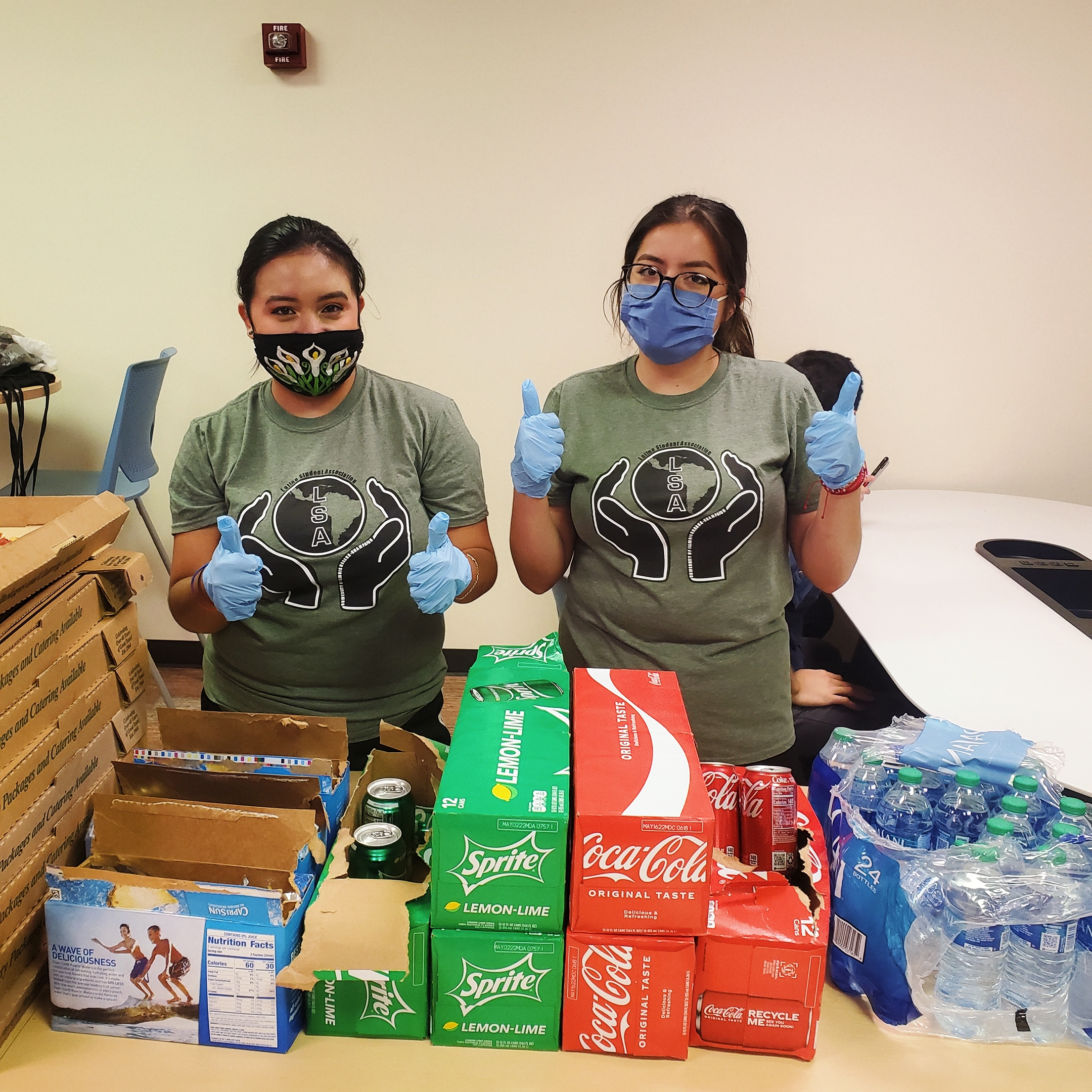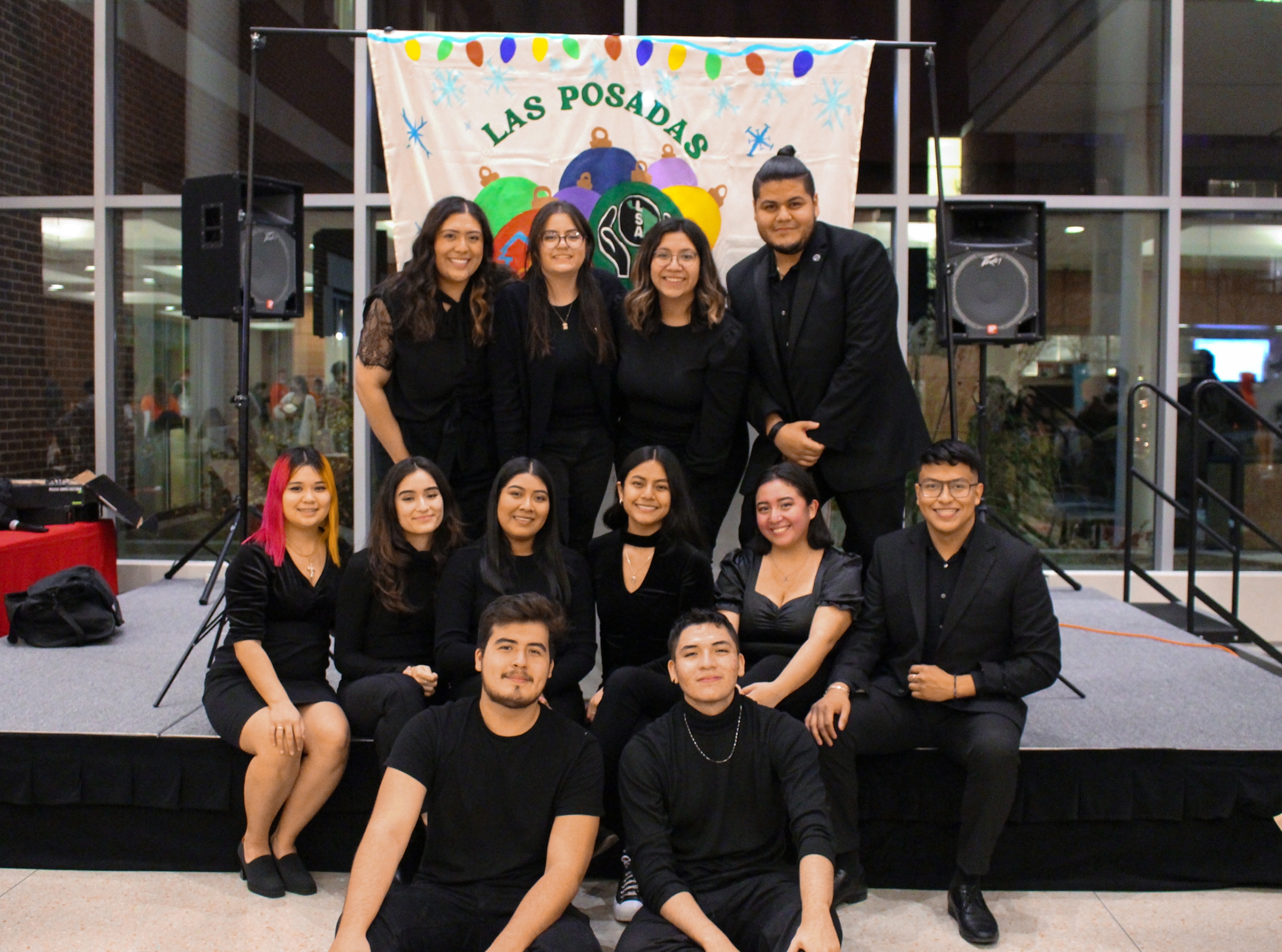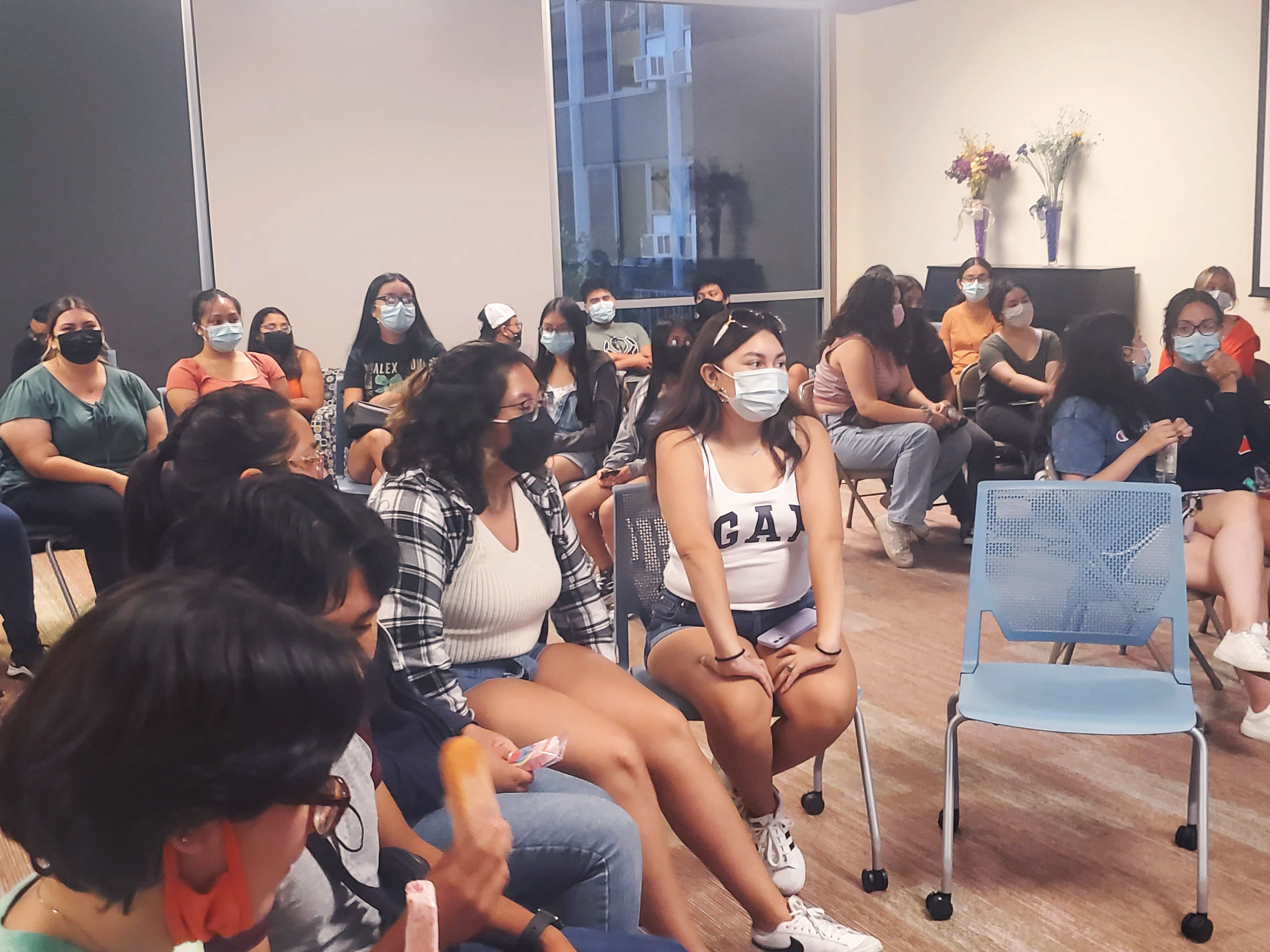Passing tests and juggling homework is hard enough for anyone in college, but for UIUC students with a different cultural background than the majority of their peers, the college experience can have some unexpected challenges.
“When I first came here, I was experiencing a lot of homesickness and a bit of imposter syndrome,” junior Miranda Estrada said. “You know, ‘Why am I here?’ It was very difficult to find people from my own culture here.”
When Miranda discovered UIUC’s Latino Student Association (LSA), she found a place to connect with people from her culture, an opportunity to make new friends, and the chance to plan some spectacularly fun events. We sat down with Miranda and fellow LSA member Itzel Morales to discuss what the LSA means to its members and what it can offer all UIUC students.

What are the LSA’s primary goals?
Itzel: I would say uniting our culture, bringing us together, and making us feel at home. And lifting each other up, because I know a lot of us are first generation. Just having a group of people that understand us lets us lift each other up pretty nicely.
Miranda: For a lot of people, when you hear “Latino,” you always assume it’s Mexico and that’s pretty much it. But the LSA encapsulates so many other forms of cultures that many people don’t really know about. And so just giving outsiders an insight of what is encapsulated in Latino culture is so important for our organization.
[The LSA] will also provide resources for you. Our exec board—they’ll always drop opportunities happening on campus. Like, “We’re doing this little event,” or “We’re giving out free food,” or “Oh, we’re going to be doing this with a fraternity or sorority organization here if you want to stop by.” So overall, the LSA gives us opportunities to grow and work into being adults while we’re going through university.
What made you want to join the LSA?
Miranda: I’m a first-generation student, so college was a very new experience for me—just trekking through university and higher education. It felt very isolating. And so when I discovered LSA … it definitely altered my whole experience here, just because I felt the sense of connection and community and family that I otherwise would not have gotten.
That’s not to say that I don’t have other friends from other cultural groups, but there is that sense of safety that I feel going to LSA … it’s just nice to have that support group, especially for first-generation students. That’s why I joined LSA.
Itzel: Who wouldn’t want to join something that brings your culture together? It was a great opportunity to meet people of my same culture so I could build connections. And then another reason why I joined was because I was trying to get more involved in activities and clubs. So it was a really great opportunity for me, because I made a lot of friendships.
What kind of struggles might a first-generation student face at college, and how can the LSA help?
Miranda: I think in general it’s the simple things, like, “How do I fill out FASFA? How do I apply for certain scholarships? How do I reach out to a professor? How do I build my portfolio?” It’s just basic things that many first-generation students don’t know, because their parents focused on providing for the family and going straight into the workforce. And so that’s what LSA does. They kind of ease you in and try to gradually teach you those steps that you should have been taught when you’re in high school.
Itzel: I am actually the youngest sibling, so I get help from my sisters as well. But when they started, I know my sisters struggled to figure out how to fill out FAFSA and other scholarships, and it can be really challenging. Having people that can help you—whether it’s siblings, mentors, teachers, or a group like LSA—you’ll know that they’re there for you. And you can rely on them or ask them for help. It’s really comforting.

What have been some of your favorite LSA events?
Miranda: [One of my favorite events has been] Las Posadas, which is a big event celebrating the three kings and is basically our Christmas event. We set up in the SDRP [Student Dining and Residential Programs building] and just have a bunch of holiday activities for not only students, but community members within the Champaign-Urbana community. We provide food, we have music, we have dancers from the folklorico, and other student orgs that come to perform. It really is an expression of our culture.
And then we have our general meetings. One of my favorite ones during the pandemic was speed friending. I really liked that just because, you know, it was messy, and it was crazy, yet people really enjoyed it. And they were able to make friends, even online. And that was really nice to see that this is a group of people that want to be connected, and to know each other, and to make a family.
Itzel: I agree with Las Posadas. It was my first year attending it, but I really liked it, especially setting up. We decorated a whole Christmas tree. We made little piñatas, and the participants could come and decorate them and put candy inside of them, which is a tradition I grew up with for birthday parties. And then we had different performances; there was a group singing, I believe, and a group performed a dance, and they even had grading for the ornaments. They had cookie decorating.
And it was open to the whole public, which was really nice. So it wasn’t only our culture, but all kinds of people could come and do stuff with us within the stations and learn about what each station was about. And I believe it brought a lot of students and people from the community together.

What do you hope for the future of the LSA?
Itzel: I definitely want to see it become bigger and keep going on throughout the years, especially because I think it is important in a predominantly white institution for students to feel welcome and for all students to be able to learn about our culture. We can bring awareness to every culture on campus. It’s a really great organization, and I’m really glad I joined it.
Miranda: Yeah, I agree. Our goal has always been to expand our outreach and to have other people know about our origins, but I think another goal is to work with a bunch of different organizations here on campus, especially the cultural ones.
Like last year, we created a tie with the PSA, the Philippine Student Association. We were able to work with them this semester again, and it was really nice. For me, it’s important to work with other cultural orgs here too. That way we get a better idea as the Latina community of other cultures, and we can build that sense of solidarity with other minorities here on campus, And so I hope that LSA can one, get a bigger reach, and two, build stronger connections with other orgs here on campus, because when you build connections, you build a stronger community.
Is there anything you want to make sure people know about the LSA?
Miranda: “Definitely. … Every Tuesday at 7 p.m. at the PAR lounge over in Urbana, that’s where we have our meetings. And just know again that it is an open community. You don’t necessarily have to be Latina to be part of LSA. We do appreciate allies and people who want to know more about our culture.”
Itzel: “I would just encourage everyone to come check it out. We’ll be happy to have you as part of our family.”
With 1,000 registered student organizations (RSOs) at UIUC, the possibilities are endless. To learn more about the Latino Student Organization and how you can get involved, check out their socials below.